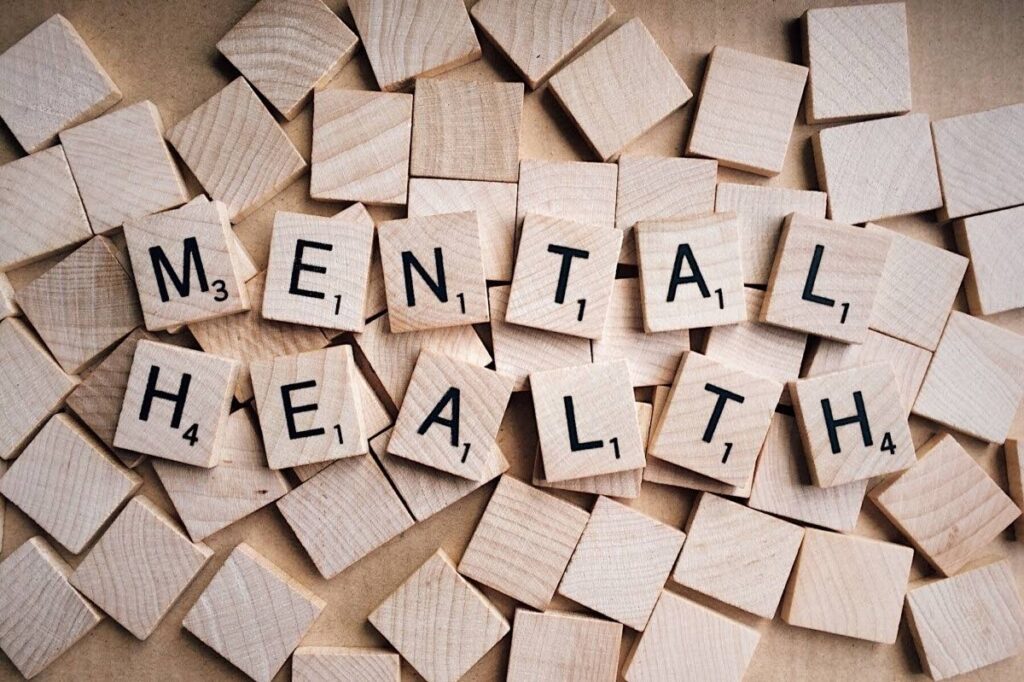Prioritise men's mental health

A Google search about men and health steers researchers and readers to articles about the lonely man and topics about loneliness and depression among men.
Countries recently observed World Mental Health Day on October 10, and national depression and mental screening month is also being observed in the US at this time.
Psychologist Ronald John believes the issue does not only affect other countries but described it as a growing problem in Trinidad and Tobago. Women, he said, tended to be more receptive and in tune with their feelings.
This was not the same for men and it was, therefore, harder for them to identify what they were feeling other than they were feeling down, low or disconnected, and many did not want to label that as loneliness.

An article by Business Insider this year quoted a 2022 Pew Research Centre survey which found that 60 per cent of young men in the US were single, nearly double the rate of women. The article also said men were less likely to go to therapy and work on whatever might be holding them back from connecting with others.
In John’s practice – while he did not have statistics – he said, anecdotally, in any given workshop he hosts, if there are 12 people, eight of them men, there were at least three who spoke about experiencing deep loneliness in a way that almost borders on depression.
The rise of “male loneliness” did not only lead to higher rates of men dying by suicide but also other illnesses like diabetes, obesity and high cholesterol, John said.
It is something TT’s health authorities need to pay more attention to, he added.
While he does not think a specific system is needed to address men’s mental health issues, John thinks TT’s wellness centres and clinics should be expanded to include more education around male loneliness. These expanded services should also include strategies, workshops and group work on the topic.
He added that TT has a number of well-thought-out wellness centres but they were limited in what they can do.
“That does not preclude us having a male loneliness day or male loneliness week to call attention to it, to call attention to the seriousness of it, to call attention to the fact that men need to wake up to this debilitating mental illness…
“I do a lot of personal growth work and because of the depths of the work that I go into, I see men being able to identify this loneliness. They can easily identify the first piece which is maybe they are physically alone but it is harder for them to identify that they are unproductive or suffering from negative thoughts or they are unable to relate to the fact that they are ill frequently and that is a symptom of their loneliness, ” John said.
The system also needed competent people and not just psychologists or psychiatrists, he said.
“Every psychologist or every psychiatrist isn’t trained in every single thing. I am a psychologist but I have done extensive work in relationship therapy, depression, and male loneliness. You have to get a number of people who have some exposure or training or understanding of what male loneliness is.”
John suggested content on various platforms that could easily be shared with men experiencing mental health challenges and contact information for available help both publicly and privately.
Asked if there was a correlation between TT’s crime problem and men’s mental health, John said he thinks so.
“I am not going to say male loneliness could be a periphery aspect of it. Crime, in a general sense, I think is definitely connected to the whole area of mental health in TT.”
He said, in general, people who committed crimes came from very dysfunctional families and suffered from a lot of abandonment, attachment and detachment issues.
He added mental health issues can and have led, in the past, to violence at all levels from mild to very aggressive crimes.
However, men’s mental well-being required an all-of-society approach, he said.
John said he was willing to do his workshops for free (a human-interaction workshop) which is “pretty intense but helps people get in touch with their feelings, some of the things holding them back and become more aware of some of the things affecting their lives.”
The workshops would give men insight into their mental health and provide strategies to move forward, he said.
While he has seen a paradigm shift in how men look at mental health, he believes there was still a lot of work to do.
John said it was important for men to take advantage of any opportunity to do personal growth and development sessions and the opportunity must be there for them to do so.
President of the Single Fathers Association Rhondall Feeles agrees that men’s mental wellness was important to the overall well-being of TT.

The issue of men’s mental well-being was heavily affected by culture, Feeles said.
“Men have been cultured from boyhood. Generally, socially, when you hear mental health people think you are talking about mad people, craziness and madness. I think, socially, we have not seen mental health issues for what it is or understood what it is about,” he said.
This was heightened for men as there were societal ideas of what a man is; how a man should be and act in given scenarios.
The lack of venting spaces for men to vent did not aid in their mental well-being.
“It has to mean that we do not see it as important. We do not even have spaces that could help men avoid running into mental health issues.
“Most of the times you would have a space if the person was a drug addict or an alcoholic. Not just an open space for men to discuss male issues.”
Feeles added that there were no spaces to house men who are socially displaced and they formed the greater number of socially displaced people in Port of Spain.
He said there still was no shelter for men.
“As a society, both from the cultural standpoint and additionally, from even state support, we have not identified men as having mental health issues and trying to put the spaces and provisions in place to assist or prevent men from finding themselves into serious mental health issues.”
There were programmes for women and children to de-stress but that was not readily the case for men, Feeles said.
“Even some of the sicknesses to which humans are prone like breast cancer you see walks, you see sponsorships, you see avenues that will help women deal with some of the things that can cause them emotional and mental stress.
“If you have physical ailments, which affect you mentally, it is the most destabilising thing. A man dealing with prostate cancer, a man dealing with leukaemia, a man dealing with all of these things, many a time don’t share that they are suffering and dealing with these things,” he said.
From his work with the association, Feeles said nearly in every case he was confronted with men dealing with mental health challenges.
“Every time a man reaches to speak with me, it is an issue he is suffering from, he is affected by emotionally and it is affecting his mental health; whether it is parental alienation, job loss, facing a maintenance order or having his child parentally abducted and having no redress…”
Even issues of paternity leave affected men’s mental well-being, Feeles said.
“People underscore the value of paternity leave and paternity leave by precedent in this country is three days, sometimes. I have seen men stressed out by the fact that they cannot be home to support their wives, so much, it pushes them into a mental depression.
“The wife is at home, she is in need of assistance and he is unable to do anything. He has to be at the eight-to-four. We look at these things as unimportant. We do not realise that it causes mental and emotional stresses upon men.”
Men’s work ethic also affected their mental health, and these were some of the physical stresses that push men into a mental health crisis, Feeles said.
“Even the man himself does not realise he is having a mental health issue. He just feels stressed out. He does not understand – because sometimes he can’t sleep at night – that is a symptom of a developing mental health issue.
“He doesn’t understand that the clenching of the jaw, the pain in the jaw… many men aren’t aware of these issues. They think they have a dental pain or problem but that time you have a mental health issue.
“It is very, very deep and because people think mental health issues means you are mad man, we have not truly investigated and looked at the symptoms of mental health challenges.”
Quoting global statistics that showed increased death by suicide among men, Feeles called for a sanctuary for them.
“They must be able to find a place where they can de-stress: mentally, physically, spiritually and emotionally.”
Feeles said this sanctuary should include sports, counselling and forms of income generation.
“When men are challenged with issues there should be a place they can go to, colloquially, to take a sweat and find some mental and emotional relief,” he said.
He said men currently relied on bars and “pusher-man blocks” for emotional and mental relief and that should not be.
While TT was making some effort to re-socialise men, Feeles thinks possibly the approach was not the best.
He said it was not truly changing masculinity but truly defining what it always has been.
“Somewhere along the line there was some miscommunication, possibly, historically, because of things men have gone through, the perception of only being breadwinners.
“From the beginning, a man in his truest sense, has always considered the value of family, love, care, nurture…,” Feeles said.
He said men speak but they won’t speak in spaces where they are not heard and taken seriously.
He again repeated the call for spaces– whether digital or physical – for them to be heard.
“We have been good for generations of taking care of everyone else: women and children. We know that is our mandate as well but we can’t be good for everyone else and not be good for ourselves.
“I encourage men to take some interest in themselves. Self care is important.”
He urged them to seek the things that would bring them into a good emotional and mental space whether it was financial literacy or assistance in their personal relationships.
“Look for the resources and try to reach out to places where you can get that assistance you need. No man is mountain and he cannot do it by himself. I am saying that for myself also and even I have to look for help when I need it.”


Comments
"Prioritise men’s mental health"